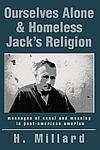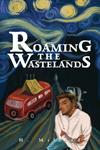 |
|
For many freedom loving citizens, Ron Paul is one of two best-of-the-lot, but unlikely to win, presidential candidates.
Paul sounds like a deeper than average thinker with some bedrock and uncompromising beliefs about freedom. As a result, he seems to often go for what is true and genuine instead of reflexively conforming to the current orthodoxy, the zeitgeist, and the PC mob mentality found under the center of the bell curve.
Still, we live in a new Dark Age where one subject eclipses all others as the Sacred Cow supreme--race. And, since Paul is a politician in this age it is not totally surprising that he genuflects before this subject of race, and gets all ga ga goo goo PC when he discusses it.
Now, maybe Paul really believes what he said recently and wasn't just trying to spout the plastic PC line. I don't know. But, I do think what he said was stupid. What he said also tends to further and keep alive the subliminal and institutional anti-science, anti-nature, anti-life and anti-white attitudes we have in this nation right now that have enabled people like George Bush to get as far as they have with their screwball schemes to blend the whole damn planet into a just right porridge of gray sameness.
Here in bold italic is what Paul said. I've split it up into digestible bites. My comments are in brackets:
"Racism is simply an ugly form of collectivism, the mindset that views humans strictly as members of groups rather than individuals."
[Wrong. Firstly, "racism," when properly defined, only means the belief that there are different races of humans, i.e. that humans generally fall naturally into genetic super-families sharing many important genetic traits that are different from other human super-families. There is nothing ugly about it. Secondly, "collectivism," per se, is not the great bugaboo that some think. Like naturally joins with like all through nature. In living things, genetic collectivism is usually desirable for survival of genes and their carriers. Thirdly, few thinking people would view humans or any other life forms 'strictly' as members of groups. Most thinkers would consider humans and all other living things both as individuals and as members of groups so long as they have some physical separation or characteristics different from others but still have something very basic in common--such as genotypes and phenotypes.]
'Racists believe that all individuals who share superficial physical characteristics are alike: as collectivists, racists think only in terms of groups."
[Our physical characteristics are not superficial. They come from the genes and are part of the essential blueprints of all peoples. Nature is extremely economical in what it designs and generally does not add superficial characteristics. Form follows function is a rule of nature. Most people understand that each of us comes from something and is part of something and that we didn't just spring up from under a cabbage out in the field as a completely new and different life form unlike other life forms. We are part of a group as soon as we are conceived. Also, the king of the human senses is sight. We mainly (but not completely) see danger rather than hearing, feeling, smelling or tasting it. We are thus programmed to be able to see so-called superficial differences and quickly process what such differences might mean to our survival. Furthermore, we have been given brains that partly learn by categorizing things--by putting them in collections of like things. In addition, Paul's logic is flawed when he says "Racists believe that all individuals...." Here's why: Paul can't possibly know what all of his undefined racists believe and he can't be serious if he thinks all members of any group (including, in this case, racists) think the same. It's just a silly and pandering statement and it does the same thing--lumping all members of a group together--that Paul says racists do and which he rails against.
"By encouraging Americans to adopt a group mentality, the advocates of so-called "diversity" actually perpetuate racism. Their obsession with racial group identity is inherently racist."
[Again, racial group identity is nature's way and it's not a bad thing. It's the way unique genes survive: by having the carriers of these genes--humans and other living things--understand the difference between like and not like and to mate with like. That's the way of evolution and survival of the fittest. So-called diversity is a complete crock, but not for the reasons stated by Paul. It's a crock because it is really just an attempt to have distinct peoples blend themselves away by first having all peoples accept all other peoples as the same as themselves but with some minor genetic, cultural, and religious differences that can be overlooked in the bedroom.]
"The true antidote to racism is liberty." [No antidote is needed for racism if the term is properly defined as I defined it above. It's not a disease. It's the sign of a people with a healthy respect for its unique genetic attributes and with a desire to not become extinct through self genocide. A just society would encourage genetically distinct peoples to preserve their genetic uniqueness.]
"Liberty means having a limited, constitutional government devoted to the protection of individual rights rather than group claims."
[Correct, to a point, but groups of like individuals are part of something larger than themselves, and their groups should be respected. A just system of government--which we don't now have--would be one that would treat individuals as individuals, but which would allow the individuals their self and group identity and their self and group determination and pursuit of happiness as part of a group to which they are naturally a part. Liberty does not mean that we pretend nature and nature's laws do not exist and try to substitute artificial man-made laws. That's the madness of this Dark Age. Contrary to the false teachings of this Dark Age, our most basic and essential identity is found in the genes we are born with. The over or under emphasis on the individual can lead, depending on which is done, to alienation from one's natural group or from oneself. Both are to be avoided. A proper balance is required. We should seek to be individuals within a group of like individuals if we want to live in peace and harmony all the days of our lives. In this regard, we need to understand that "race" is pretty far downstream from the spring of our existence and if we are to really understand race and even life, itself, we need to start at the sub-atomic particle level of existence and build our understanding from there with the underlying natural laws that are behind everything. However, this is for another column.]
"Liberty means free-market capitalism, which rewards individual achievement and competence, not skin color, gender, or ethnicity."
[Well, that's not exactly what "liberty" means, but it's not bad. Implicit in Paul's statement, here, is the concept of having a just government that doesn't curtail our liberty unreasonably. So far, so good. And, free-market capitalism, etc. is good, but we need to understand that the concept is often distorted and manipulated by those who use such platitudes to gain unfair advantages over others and especially over others to whom they don't usually have genetic links such that they are part of the same "super-family."
To repeat: A just government--which we don't now have--would be one that would allow individuals to see themselves as individuals but also as part of a larger group of like individuals based on the most natural and most important of our many possible identities--the one we are born with--our genes.]
"More importantly, in a free society every citizen gains a sense of himself as an individual, rather than developing a group or victim mentality."
[Wrong. In a truly free and just society in which citizens can pursue their happiness and their destinies as they deem best for themselves, these citizens will have a sense of their individuality--born of their genes--but also a sense of being part of a larger group of like individuals with similar genes.]
"This leads to a sense of individual responsibility and personal pride, making skin color irrelevant."
[Skin color is not irrelevant. It is not like paint that is thrown over identical human models as though they're identical automobiles coming off an assembly line. Our skin is the largest organ we have. Its color is a product of genetic adaptations to different conditions. Skin color starts with the genes and is essential to who and what we are. One does not "just happen" to be born black, white, brown, yellow or red. One is born as one is because of the genes of one's parents who are part of a genetic group. It's part of the design of life. Of course individual responsibility is important. However, this concept should not be used to cause the individual to alienate himself from his natural group.]
"Rather than looking to government to correct our sins, we should understand that racism will endure until we stop thinking in terms of groups and begin thinking in terms of individual liberty."
[ Again, Paul puts too much emphasis on the individual while not even considering that an individual is also part of a group of like individuals who are genetically related to him. Ants are also individuals, but they're useless to themselves and to others as individuals. They find their purpose in being part of something larger--the ant colony. They fit right in with their genetic relatives. The collective ant colony protects, preserves and propagates the genes of the individuals who are part of the collective. Are we humans so different? Well, we're not ants. We're humans. Still, we are part of nature and nature has collectivized us into groups of individuals with similar genes--what we call races when we're talking about humans and breeds when we're talking about some other animals such as dogs. The more science learns about human genes, the more like all other living things--including ants--we seem to be. Should we try to deny our nature? That's what those who put too much emphasis on the individual and none on the group are doing. Their way leads to disharmony and unhappiness. Doubt it? Compare crime and other statistics of social dysfunction in diverse cities with those in non-diverse cities.]
If we want to survive and prosper as a people, we are going to have to start challenging false statements such as those made by Ron Paul. Such false statements, if unchallenged, and if repeated often enough, have a way of worming their way into the collective subconscious where the can ensnare many gullible people into believing them and acting on them to the detriment of their survival.
Ideas of reality that are false because they don't comport with nature; such as those expressed by Ron Paul in his above statement, can be dangerous things, but ideas of reality that are true because they do comport with nature, can never be dangerous in the long unfolding of existence. |
|
# # # |
|
THREE BOOKS BY HARD TO PIGEONHOLE H. MILLARD All three books are now listed on Amazon.com. The lefties at the OC WEEKLY said Millard is one of OC's most frightening people. "Millard is an important writer" New Nation News |
 |
Ourselves Alone & Homeless Jack's Religion |
 |
ROAMING THE WASTELANDS |
 |
THE OUTSIDER - (ISBN: 0-595-19424-9) |
| Views expressed by guest columnists, reporters and external links not necessarily those of the editor of New Nation News but hopefully of some interest |